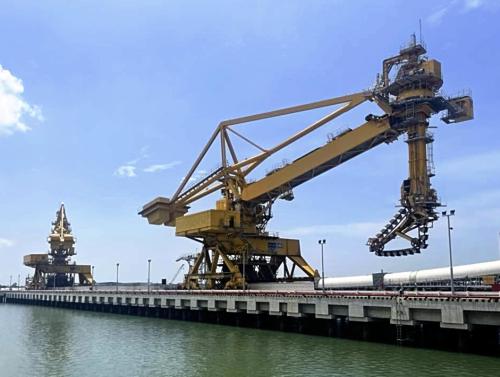Will China’s rise threaten Korea and geopolitical stability in East Asia? Will Korea have to choose between two great powers, the U.S. and China? Is China genuinely interested in friendship and cooperation with Korea or in domination? Do friendly relations between China and Korea make the U.S. unhappy?
Many Koreans have been asking these questions particularly since the July summit between President Park Geun-hye and her Chinese counterpart Xi Jinping. In recent visits to Washington, Korean policymakers and media have repeatedly asked these questions of American policymakers and analysts. In my view, they are the wrong questions to ask.
Rather, the big question is whether China has the economic capability and political coherence to translate its large land mass and population into military power and global leadership. As of now, and for some time to come, the answer is no. Traditionally, great-power status requires economic capabilities that can support and sustain serious and prolonged projection of military power. Political cohesion that allows a population to rally behind national symbols and a national cause are also essential. China does not yet meet these two requirements.
For one thing, China is still a poor country with very uneven domestic development. It is first and foremost a developing country. In 2013, the World Bank ranked China 84th ($11,905) in GDP per capita adjusted for purchasing power parity or PPP among 185 countries. Serbia and South Africa ranked higher. Cuba, which is a decrepit economy by any measure, ranked much higher at No. 60 with $18,796.
Regional inequality persists in terms of the concentration of heavy industry, domestic capital accumulation, and real wage differentials across provinces. 2013 GDP per capita in the three richest cities of Beijing, Shanghai and Tianjin was about four times higher than in the three poorest provinces of Gansu, Guizhou and Yunnan. China’s economic miracle is also based on shadow banking and artificially high savings rates that cannot be sustained.
Moreover, China will continue to face internal divisions that threaten its territorial integrity and centralized political control. The world already knows about the ethnic and religious minorities in Tibet and Xinjiang who have been fighting for autonomy from Beijing. In late July Chinese authorities gunned down 59 people in two towns in Xinjiang, with a total death toll of about 100. Xinjiang takes up more than one-sixth of China’s land mass.
Fifty-five minority groups make up more than 100 million of China’s population, and they are not integrated; the minorities stand apart from one another and the majority Han Chinese by culture, language, and unequal economic opportunities and political power. A new book about China’s minority populations by David Eimer, “The Emperor Far Away: Travels at the Edge of China,” describes the People’s Republic of China not as a unitary nation state but as a “huge, unwieldy, unstable empire,” filled with minorities who resent and resist the domination of the Han Chinese and the Beijing government.
Additionally, as Chinese grow wealthier, their desire for political reform and participation grows. Each year, around 30,000-50,000 “mass incidents” or local uprisings and protests occur in China around issues related to land disputes and environmental problems.
In the context of potential economic and political instability in China, the wisest policy for Korea and the U.S. is to help sustain and support a regional environment where China can continue to focus on economic development and internal political stability. That includes healthy economic competition and cooperation between Korea and China for mutual benefit.
It also includes a Korea that can conduct smart, sophisticated diplomacy to help mediate tensions between China and the U.S. Korea’s challenge is to stop believing, based on past history and psychology, that it needs a great power protector. It does not have to choose between China and the U.S. Rather, it has to make itself needed by both.
This article originally appeared in The Chosun Ilbo.
The Brookings Institution is committed to quality, independence, and impact.
We are supported by a diverse array of funders. In line with our values and policies, each Brookings publication represents the sole views of its author(s).



Commentary
Op-edChina: Perception versus Reality
August 18, 2014